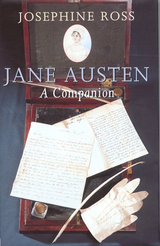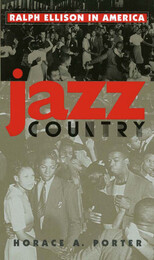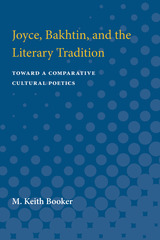111 books about Knowledge and learning and 3
start with J
111 books about Knowledge and learning and 3
111 books about Knowledge and learning
3 start with J start with J
3 start with J start with J

Jane Austen
A Companion
Ross, Josephine
Rutgers University Press, 2003
The only best-selling authors in Jane Austen's league in the English language today are Shakespeare and Dickens. In the twenty-first century her boundless appeal continues to grow following the enormously successful television and film adaptations of Mansfield Park, Pride and Prejudice, Emma, Persuasion, and Sense and Sensibility.
This illuminating, entertaining, up-to-date companion is the only general guide to Jane Austen, her work, and her world. Josephine Ross explores the literary scene during the time Austen's works first appeared: the books considered classics then, the "horrid novels" and romances, and the grasping publishers. She looks at the architecture and décor of Austen's era that made up "the profusion and elegance of modern taste." Regency houses for instance, Chippendale furniture, and "picturesque scenery." On a smaller scale she answers questions that may baffle modern readers. What, for example, was "hartshorn"? How did Lizzy Bennet "let down" her gown to hide her muddy petticoat? Ross shows us the fashions, and the subtle ways Jane Austen used clothes to express character. Courtship, marriage, adultery, class and "rank," mundane tasks of ordinary life, all appear, as does the wider political and military world.
This book will add depth to all readers' enjoyment of Jane Austen, whether confirmed addicts or newcomers wanting to learn about one of the world's most popular and enduring writers.
This illuminating, entertaining, up-to-date companion is the only general guide to Jane Austen, her work, and her world. Josephine Ross explores the literary scene during the time Austen's works first appeared: the books considered classics then, the "horrid novels" and romances, and the grasping publishers. She looks at the architecture and décor of Austen's era that made up "the profusion and elegance of modern taste." Regency houses for instance, Chippendale furniture, and "picturesque scenery." On a smaller scale she answers questions that may baffle modern readers. What, for example, was "hartshorn"? How did Lizzy Bennet "let down" her gown to hide her muddy petticoat? Ross shows us the fashions, and the subtle ways Jane Austen used clothes to express character. Courtship, marriage, adultery, class and "rank," mundane tasks of ordinary life, all appear, as does the wider political and military world.
This book will add depth to all readers' enjoyment of Jane Austen, whether confirmed addicts or newcomers wanting to learn about one of the world's most popular and enduring writers.
[more]

Jazz Country
Ralph Ellison in America
Horace A. Porter
University of Iowa Press, 2001
Horace Porter is the chair of African American World Studies and professor of English at the University of Iowa. He is the author of Stealing Fire: The Art and Protest of James Baldwin and one of the editors of Call and Response: The Riverside Anthology of the African American Literary Tradition.
The first book to reassess Ralph Ellison after his death and the posthumous publication ofJuneteenth, his second novel, Jazz Country: Ralph Ellison in America explores Ellison's writings and views on American culture through the lens of jazz music.
Horace Porter's groundbreaking study addresses Ellison's jazz background, including his essays and comments about jazz musicians such as Louis Armstrong, Duke Ellington, and Charlie Parker. Porter further examines the influences of Ellington and Armstrong as sources of the writer's personal and artistic inspiration and highlights the significance of Ellison's camaraderie with two African American friends and fellow jazz fans—the writer Albert Murray and the painter Romare Bearden. Most notably, Jazz Country demonstrates how Ellison appropriated jazz techniques in his two novels, Invisible Man and Juneteenth.
Using jazz as the key metaphor, Porter refocuses old interpretations of Ellison by placing jazz in the foreground and by emphasizing, especially as revealed in his essays, the power of Ellison's thought and cultural perception. The self-proclaimed “custodian of American culture,” Ellison offers a vision of “jazz-shaped” America—a world of improvisation, individualism, and infinite possibility.
[more]

Joyce, Bakhtin, and the Literary Tradition
Toward a Comparative Cultural Poetics
M. Keith Booker
University of Michigan Press, 1997
Literary studies of James Joyce, perhaps more so than those of any other author, have been enriched by important developments in literary theory in the last twenty-five years. Noting a curious gap in this scholarship, M. Keith Booker brings the work of Mikhail Bakhtin, unquestionably one of the most important literary theorists of this century, to bear on Joyce's relationship to six of his literary predecessors. In clear and readable prose, Booker explores Joyce's dialogues not only with Homer, Dante, and Shakespeare, his three most obvious predecessors, but with Rabelais, Goethe, and Dostoevsky, three literary figures important in Bakhtin's theoretical work.
These six writers provide the opportunity to examine Joyce's work with regard to several of Bakhtin's most important concepts. If Homer represents the authority of epic, Rabelais represents for Bakhtin the subversive multivocal energies of carnivalesque genres. As opposed to his description of Dante's attempts to escape from historicity, Bakhtin figures Goethe as the epitome of engagement with the temporality of everyday history. And Bakhtin's generic denial of polyphony in the works of Shakespeare contrasts with Bakhtin's identification of Dostoevsky as the most polyphonic writer in all the world of literature.
Together, Booker's comparative readings suggest a Joyce whose works are politically committed, historically engaged, and socially relevant. In short, they suggest a Joyce whose work differs radically from conventional notions of modernist literature as culturally elitist, historically detached, and more interested in individual psychology than in social reality.
M. Keith Booker is Professor of English, University of Arkansas.
These six writers provide the opportunity to examine Joyce's work with regard to several of Bakhtin's most important concepts. If Homer represents the authority of epic, Rabelais represents for Bakhtin the subversive multivocal energies of carnivalesque genres. As opposed to his description of Dante's attempts to escape from historicity, Bakhtin figures Goethe as the epitome of engagement with the temporality of everyday history. And Bakhtin's generic denial of polyphony in the works of Shakespeare contrasts with Bakhtin's identification of Dostoevsky as the most polyphonic writer in all the world of literature.
Together, Booker's comparative readings suggest a Joyce whose works are politically committed, historically engaged, and socially relevant. In short, they suggest a Joyce whose work differs radically from conventional notions of modernist literature as culturally elitist, historically detached, and more interested in individual psychology than in social reality.
M. Keith Booker is Professor of English, University of Arkansas.
[more]
READERS
Browse our collection.
PUBLISHERS
See BiblioVault's publisher services.
STUDENT SERVICES
Files for college accessibility offices.
UChicago Accessibility Resources
home | accessibility | search | about | contact us
BiblioVault ® 2001 - 2024
The University of Chicago Press









